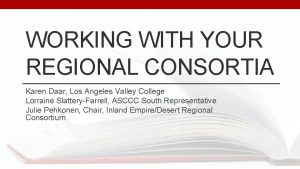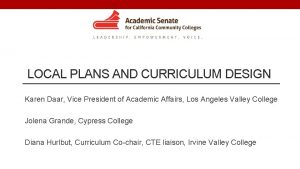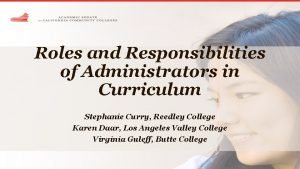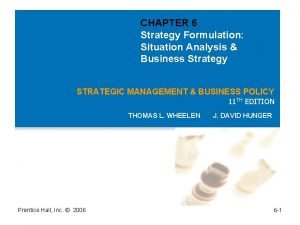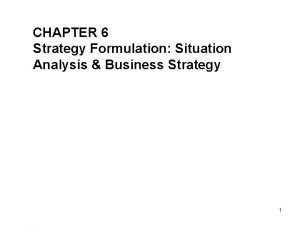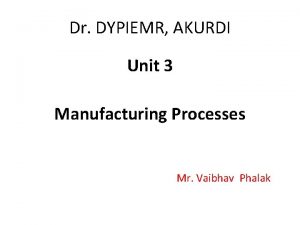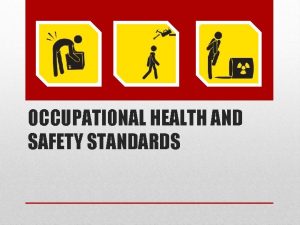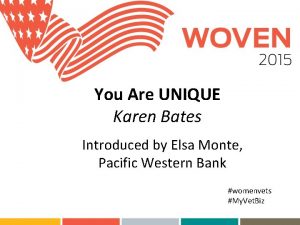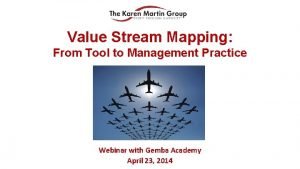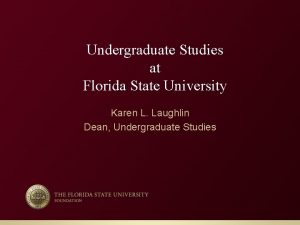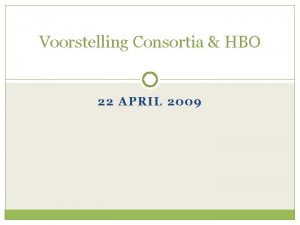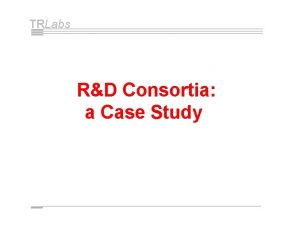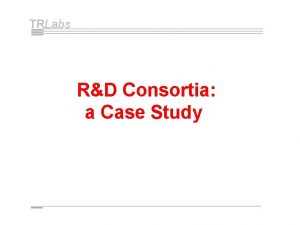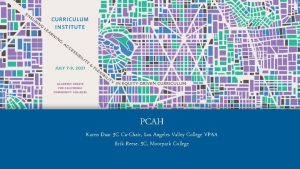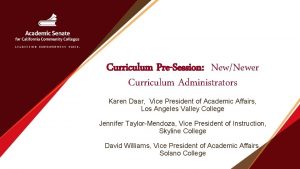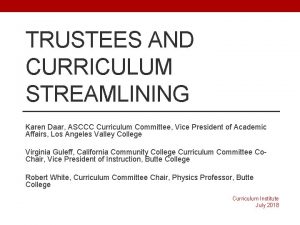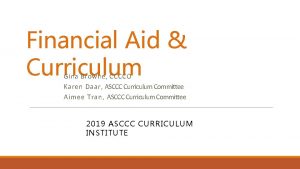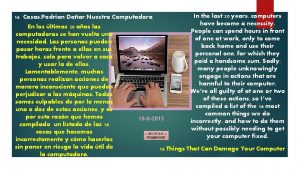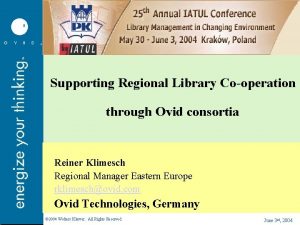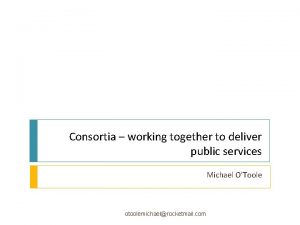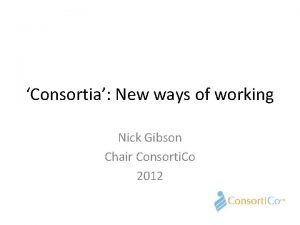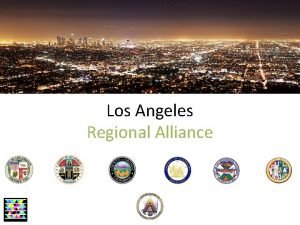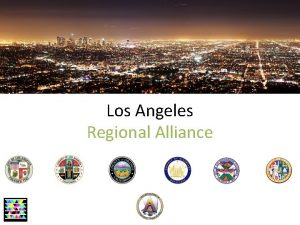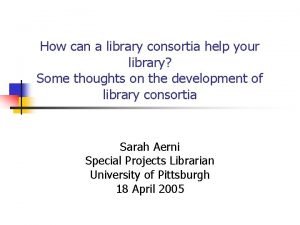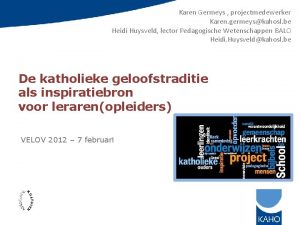WORKING WITH YOUR REGIONAL CONSORTIA Karen Daar Los



























- Slides: 27

WORKING WITH YOUR REGIONAL CONSORTIA Karen Daar, Los Angeles Valley College Lorraine Slattery-Farrell, ASCCC South Representative Julie Pehkonen, Chair, Inland Empire/Desert Regional Consortium

2 Breakout Description This breakout will examine the program review process for CTE and the roles of regional consortia and advisory boards. Presenters will discuss how to effectively work with your regional consortia, advisory boards, and DSN.

3 The Role of Regional Consortia in Curriculum Process

4 Title 5 § 55130(b)(8)(E) • New and substantially revised programs require the recommendation of the Regional Consortia

Regional Consortia Consider • Labor Market Data • Undue Impact on other colleges

doingwhatmatters. cccco. edu

7 Who Makes the Recommendation? Typically a subcommittee of the CTE Deans

8 What are consortia looking for? Primarily … to ascertain the need for the proposed program in regard to other community colleges in the area, as specified by Title 5, section 55130 (b)(8)(E).

9 What is the Process?

This site is under development. Actual site will go live soon.

Step 1: Create a user account (register) doingwhatmatters. cccco. edu

Why Register?


Step 2: Request a LMI report from the Center of Excellence doingwhatmatters. cccco. edu


Step 3: Submit a request to your regional consortium to review your program and recommend approval (actual site will be live soon) doingwhatmatters. cccco. edu


These questions are the same on your submission to the CCCCO.

Some regions require additional information (not all)

Review your submission before submitting Check the status of your submission

Browse and view program submissions (not just your own)

For more information about your region’s process, go to: Region Website: Bay Area Region http: //www. baccc. net/Home/program-endorsement-guidelines Central/Mother Lode Region http: //crconsortium. com/program-and-course-approval/ Inland Empire/Desert Region https: //desertcolleges. org/cte/program-process. php Los Angeles/Orange County Region http: //www. laocrc. org/educators North/Far North Region http: //nfnrc. org/home/information-hub/program-proposal-meetings/ San Diego/Imperial Counties Region http: //myworkforceconnection. org/committee-sub/program-approvalprocess/ South Central Coast Region http: //sccrcolleges. org/partners

Who are the DSNs and how can they help identify regional needs? doingwhatmatters. cccco. edu


ü Industry projections at the regional level (i. e. , specific projects, expansions, etc. ) that might impact the local workforce. ü Occupations on the decline. ü Support cross-sector CTE education programs. ü Facilitate conversations and surveys with respective industries. ü Identify and disseminate skills, credentials and certificates that regional employers need. doingwhatmatters. cccco. edu ü Facilitate faculty development opportunities. ü Coordinate Regional Advisory programs. ü Convene multi-college stakeholders in a sector. ü Assist in aligning K-12 pathways with CC programs and aligning CC programs with industry needs. ü What training is more applicable to K-12.

27

28 Thank you! Karen Daar: daarkl@lavc. edu Julie Pehkonen: Julie. Pehkonen@rcc. edu Lorraine Slattery-Farrell: lfarrell@msjc. edu
 Karen daar
Karen daar Karen daar
Karen daar Karen daar
Karen daar Sfas
Sfas Sfas matrix example
Sfas matrix example Mutual service consortia
Mutual service consortia Working smart vs working hard
Working smart vs working hard Hot working diagram
Hot working diagram Hot working and cold working difference
Hot working and cold working difference Machining operations
Machining operations Contoh hot working
Contoh hot working Give us your hungry your tired your poor
Give us your hungry your tired your poor Refers
Refers Cienes dieces y unos
Cienes dieces y unos Karen aguayo bates
Karen aguayo bates Karen hudes whistleblower
Karen hudes whistleblower Witness by karen hesse
Witness by karen hesse Karen cumpata
Karen cumpata Karen martin value stream mapping
Karen martin value stream mapping Karen leyman
Karen leyman Dean of undergraduate studies fsu
Dean of undergraduate studies fsu Karen wetterhahn
Karen wetterhahn Karen carpenter mother
Karen carpenter mother Karen moldenhauer
Karen moldenhauer Basic evil karen horney
Basic evil karen horney Karen wetterhahn
Karen wetterhahn Karen goodlad
Karen goodlad Karen goodlad
Karen goodlad
